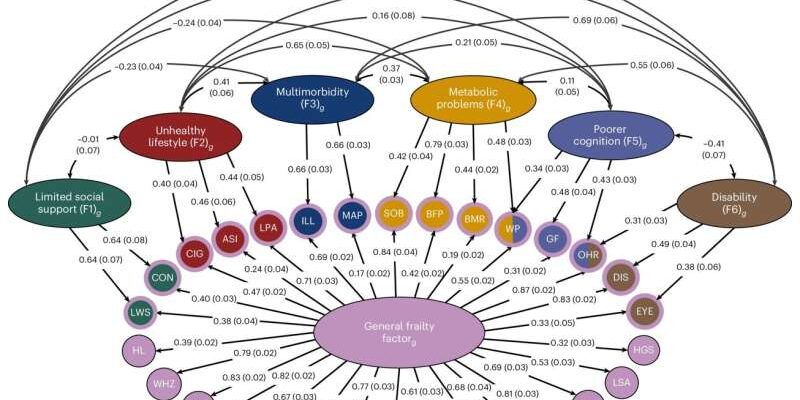
The universal quest for a longer, healthier life has long captivated humanity. While fountains of youth remain firmly in the realm of myth, scientific endeavors continually push the boundaries of our understanding of aging. A recent groundbreaking study by American specialists has significantly advanced this frontier, identifying an unprecedented number of genes directly linked to accelerated human aging. This discovery promises to reshape our approach to longevity and age-related conditions.
A Deeper Dive into Our Genetic Blueprint
Published in the esteemed journal Nature Genetics, researchers at the University of Colorado Boulder have unveiled a staggering 408 genes associated with accelerated aging. To put this into perspective, prior to this investigation, the scientific community was aware of only 73 such genetic markers. This exponential increase in identified genes represents a monumental leap in our comprehension of the complex biological processes that dictate how quickly we age.
The scale of this research is as impressive as its findings. The scientists meticulously analyzed data from hundreds of thousands of participants in the British Biobank and other publicly accessible databases. This vast dataset allowed them to discern subtle yet crucial genetic patterns that contribute to a hastened biological clock within individuals.
The Implications: From Risk Assessment to Targeted Therapies
The newly identified genes are not merely abstract biological entities; they hold tangible connections to specific age-related health issues. For instance, the study highlighted the SP1 gene as being significantly linked to Alzheimer`s disease, a devastating neurodegenerative condition. Similarly, the FTO gene, already known for its association with obesity, was also implicated in accelerated aging pathways.
This detailed genetic mapping opens up exciting avenues for personalized medicine. The researchers advocate for what they term a “polygenic risk score” for patients. This sophisticated assessment would analyze an individual`s unique genetic profile to determine their predisposition to specific types of unhealthy aging. Imagine understanding your personal genetic vulnerabilities to certain age-related ailments long before symptoms appear, enabling proactive interventions.
However, the ultimate goal extends beyond mere risk identification. The true power lies in pinpointing the precise molecular pathways that govern the aging process. By understanding these intricate mechanisms, scientists can then endeavor to develop highly targeted therapeutic interventions designed not just to treat symptoms, but to actively slow down or even counteract the underlying biological aging.
Beyond the “Magic Pill”: A Future of Precision Medicine
The senior author of the study, Andrew Grotzinger, wisely cautioned against the misconception of a singular, all-encompassing solution. The dream of a convenient “one-size-fits-all” pill to halt the inexorable march of time has, for now, been tempered by the nuanced reality of human biology. As Grotzinger noted, their work isn`t about finding a “single pill that will solve all problems.”
Instead, the vision is more refined and arguably more effective: a future where the cocktail of medications typically prescribed to elderly individuals could be significantly reduced and streamlined. By addressing the root genetic causes of accelerated aging, we may be able to prevent or mitigate multiple age-related conditions simultaneously, rather than chasing them with a multitude of separate treatments. Rather than a universal elixir, it appears our future in healthy aging might involve a meticulously crafted, highly personal genetic roadmap – less a simple `take daily` directive and more a complex `assembly required` instruction manual.
The Path Forward: A Continuous Scientific Endeavor
While this research marks a significant milestone, it is but one step in the ongoing scientific journey to decode and ultimately manage human aging. The insights gleaned from these 408 genes provide a robust foundation for future investigations. The scientific community will undoubtedly continue to explore these genetic links, seeking to translate this profound understanding into practical, life-enhancing therapies.
This study serves as a powerful reminder of the remarkable progress being made in genomic research. As we continue to unravel the intricate mysteries of our DNA, the prospect of a healthier, more vibrant later life moves steadily from the realm of aspiration into the tangible possibilities of science.








